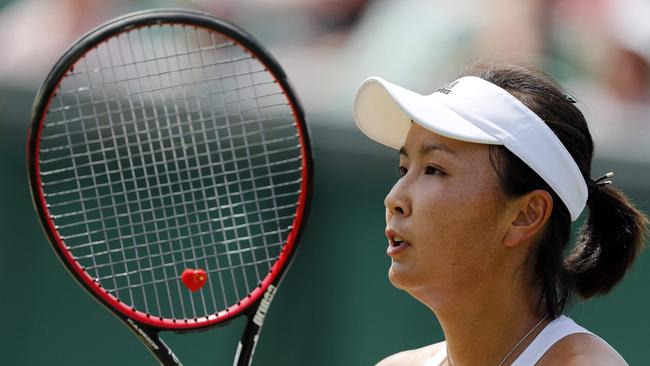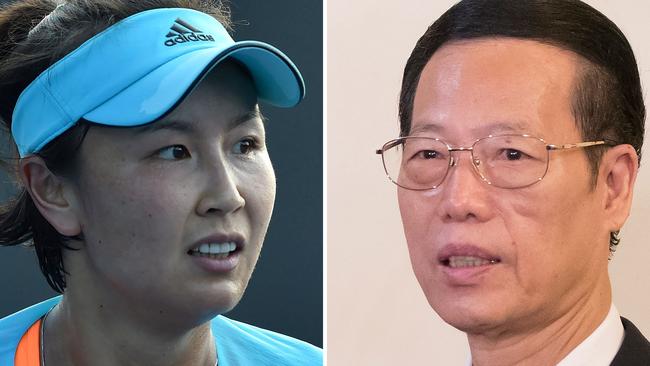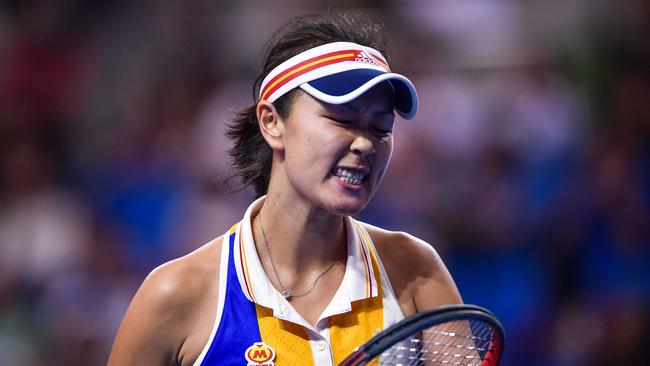Winter Olympics 2022: Will Australia boycott the Games over Peng Shuai situation?
The mystery surrounding the disappearance of Chinese tennis star Peng Shuai has sparked calls to boycott the Beijing Winter Olympics. So will Australia compete?

The Australian Olympic Committee remains steadfast to compete at the Beijing Winter Games despite increasing global pressure on China over the welfare of missing Chinese tennis champion Peng Shuai.
The AOC’s position has emerged as Liberal Senator and retired army major general Jim Molan spoke of Australia’s serious concern for how China has responded to the tennis player’s disappearance.
A number of athletes and politicians across the world, have raised questions about the Chinese tennis champion, who hasn’t been seen - besides suspect and unverified video provided by the China State media - since she accused a senior Communist Party leader of sexual assault, amid diplomatic pressure on Beijing’s Winter Olympics.
US President Joe Biden has stated that his administration was considering a diplomatic boycott of the 2022 Winter Olympics in Beijing.
“This raises extreme ethical and moral issues,’’ Senator Molan said. “The approach that we’ve taken to China over China joining the trans-Pacific partnership is that they’ve got to stop abusing us over trade.
“Why wouldn’t we take a similar view in relation to sport?
“If Peng Shuai doesn’t appear, is this not the same as abuse of the Uyghurs?”
Defence Minister Peter Dutton said: “The short answer is no (I don’t support a boycott), but that’s an issue for others to consider, if that’s something under consideration, (it’s) not a conversation I’ve been a party to.”
The Chinese former doubles world No.1 alleged on social media this month that former vice-premier of China, Zhang Gaoli, coerced her into sex and that they later had an on-off consensual relationship.
Her post was deleted half an hour later.
AOC chief executive Matt Carroll said there was no consideration to boycott the Games next February.
“Diplomatic boycotts are a matter for governments,’’ Carroll said. “There’s no suggestion of a boycott by the Australian Team.”
“Human rights are very important but it’s unfair for the athletes to carry the burden of foreign policy.”

CONTROVERSIES OVERSHADOWING OLYMPICS
From human rights to coronavirus and now tennis star Peng Shuai, preparations for February’s Beijing Olympics have been overshadowed by several controversies.
China’s ruling Communist Party is however determined to frame the Winter Games as a chance for the country to showcase its prowess and help the world unite in the face of the pandemic.
The International Olympic Committee has lauded Beijing for making history in becoming the first host of a Summer Games, in 2008, and now a Winter one.
Peng Shuai There was grave international concern for former world number one doubles player Peng after she made sexual assault accusations on social media against a former top Communist Party politician.
The 35-year-old -- a three-time Olympian -- was not heard from for more than two weeks and her claims were rapidly censored. The United Nations, US and Peng’s fellow tennis stars all voiced fears for her whereabouts.
The Women’s Tennis Association threatened to end its lucrative business in China unless it was assured of her safety.
Peng later appeared on state media in several videos and held a video call with IOC president Thomas Bach on Sunday in which she said she was safe and well, however concerns remain.
Xinjiang Campaigners say that at least one million Uyghurs and other Turkic-speaking, mostly Muslim minorities have been incarcerated in camps in China’s northwestern region of Xinjiang.

Human rights groups and foreign governments have found evidence of what they say is mass detentions, forced labour, political indoctrination, torture and forced sterilisation.
Washington has described the situation as genocide and banned all cotton from Xinjiang. US President Joe Biden has said he is considering a diplomatic boycott of the Olympics.
Several major fashion brands have announced they would no longer use cotton from Xinjiang for fear it has been produced by forced labour.
After initially denying the existence of the Xinjiang camps, China later defended them as vocational training centres aimed at reducing the appeal of Islamic extremism.
In response to the boycott calls, China has consistently railed against what it calls the “politicisation of sport”.
Tibet, Hong Kong Human rights campaigners and exiles have accused Beijing of religious repression and massively curtailing rights in Tibet.
Activists unfurled a Tibetan flag at the Olympic flame-lighting ceremony in Greece.
Tibet has alternated over the centuries between independence and control by China, which says it “peacefully liberated” the rugged plateau in 1951 and brought infrastructure and education to the previously underdeveloped region.
But many exiled Tibetans accuse the Beijing government of religious repression, torture and eroding their culture -- part of broader fears for human rights in China.
There has also been international concern about a clampdown in Hong Kong, which China is remoulding in its own authoritarian image after huge and often violent democracy protests in the city two years ago.
Coronavirus The coronavirus has loomed large over the build-up to the Beijing Olympics, which take place just six months after the pandemic-delayed Tokyo Summer Games.
China has managed to restrict domestic infections to small clusters through aggressive lockdowns and mass testing, but Beijing organisers have admitted that protecting the Games from the coronavirus is their “biggest challenge”.
The Winter Olympics will be held in a “closed loop” -- a strict bubble insulating athletes from the outside world for the whole Games. Only people living in China will be allowed to attend as spectators.
The estimated 2,900 athletes must be fully vaccinated or face 21 days in quarantine upon arrival. They, along with media and others in the bubble, will also be tested daily.
Entry into the Chinese capital has already been tightened.




To join the conversation, please log in. Don't have an account? Register
Join the conversation, you are commenting as Logout